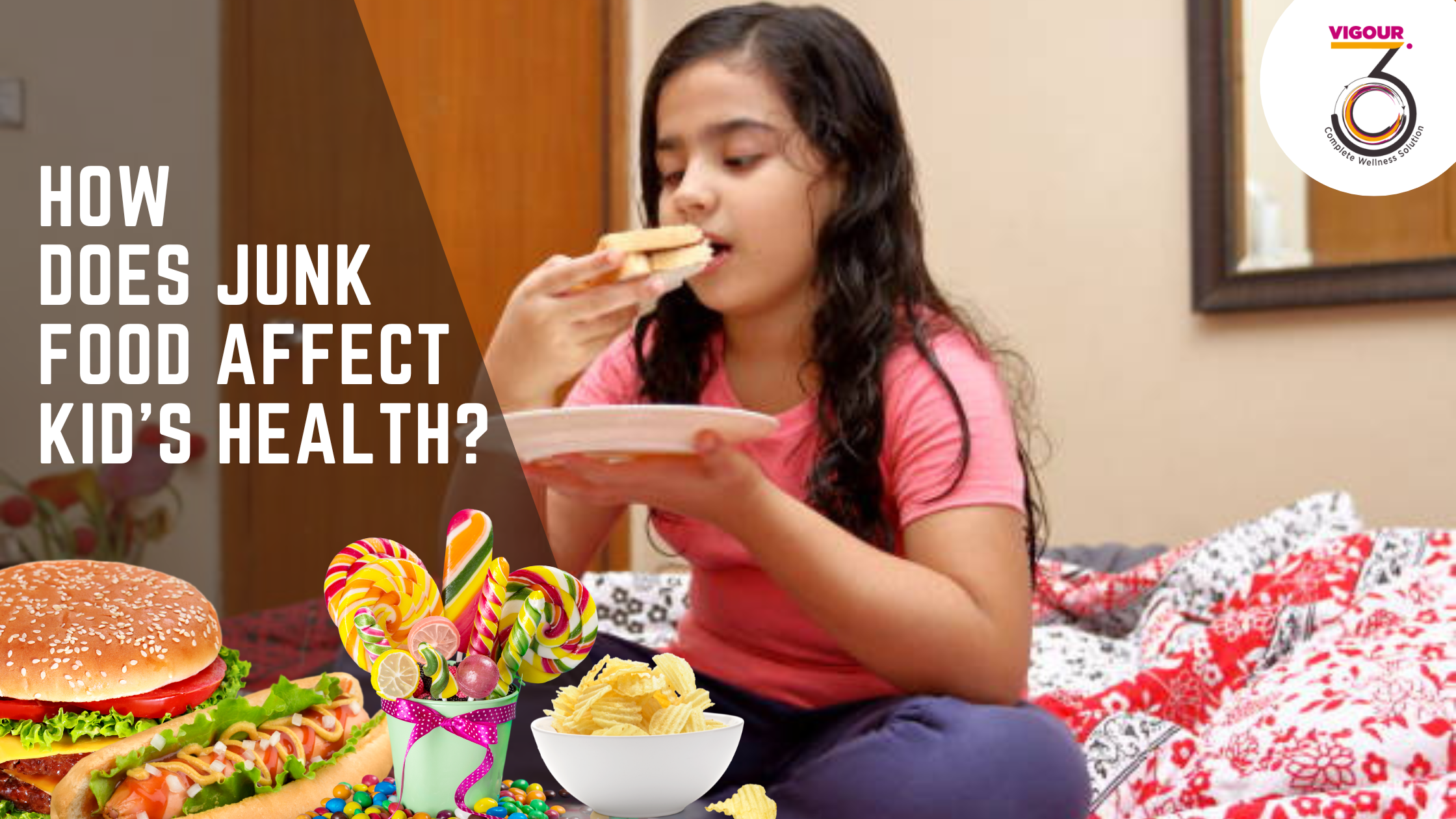
According to various studies, 93% of children in India consume packaged food more than once a week. In recent years, a new junk food culture has emerged, which is high in calories, sugar, and salt, and can negatively impact children's health. This growing demand for quick meals is contributing to a childhood obesity epidemic, putting kids at a higher risk for diabetes, cardiovascular diseases, and other health issues.
The adage "You are what you eat" underscores the importance of diet in a child's overall growth and development. In this article, we will explore how does junk food affect children's health.
Junk food has a significant impact on weight gain; hence it leads to BMI-related problems in children.
Fast food lacks fiber, hence affects digestion. A sedentary lifestyle and consumption of junk food adversely affect metabolism in children. It leads to weight gain, which leads to childhood obesity. Childhood obesity leads to myriads of chronic conditions such as diabetes, PCOS in girls, heart diseases etc.
Parents should ensure that children eat whole grains, fruits, vegetables, pulses, and legumes and follow an active lifestyle to improve metabolism.
Processed food such as cakes, cookies, biscuits, doughnuts, crackers, and packed snacks always have high calories and sugars. Trans fats are considered the unhealthiest fats and increase LDL cholesterol. High levels of LDL cholesterol can increase the risk of heart disease. Trans fat is also linked with weight gain. Processed food high in salt increases the risk of high blood pressure and heart problems from an early age.
Parents should teach children to read labels while consuming packaged food. Also, make them aware of unhealthy ingredients from a young age.
Junk food, rich in excessive sugars and fats, is a major contributor to the rise in pediatric non-alcoholic fatty liver disease. These empty calories burden the liver's metabolic functions, causing fat build-up and inflammation. It's better to limit the consumption of junk food. Parents should act as role models and practice healthy food choices in everyday life.
.png)
Packaged foods are low in nutrients, and these empty calories can create a false sense of fullness. While children may gain weight, they often suffer from deficiencies in vitamins, minerals, calcium, iron, and protein due to inadequate nutrition. Therefore, planning a balanced diet is essential to meet a child's nutritional needs.
Regular consumption of junk food is linked to reduced focus, poor concentration, and mood swings. Homemade, freshly cooked meals are essential for optimal cognitive function in children.
High-sugar snacks or drinks lead to a spike in sugar causing hyperactivity in children, and poor attention. It is also called Attention Deficient Hyperactivity Disorder (ADHD). Children with ADHD can have mental problems such as anxiety, depression, mood swings, sleep problems as well as antisocial behaviours. Lifestyle changes and a healthy diet help to improve their daily life.
Fast food products are often targeted at children using attractive colours, enticing gifts, catchy slogans, and cartoon characters. Parents need to be vigilant and avoid introducing these products to their children at an early age. The easy availability and low cost of packaged foods make them a popular choice among lower socioeconomic classes. However, it is crucial to recognize the long-term costs associated with treating the health issues caused by junk food consumption.
The effects of junk food extend beyond childhood, leading to lifelong consequences. Recognizing the negative impact of fast food and promoting healthy eating habits can significantly contribute to a child's holistic development and mitigate the risk of chronic diseases.
Vigour360 School Health Program facilitates preventive screening in dchildren to detect BMI problems, Nutritional deficiency through advanced Body Composition Analysis. This proactive approach help to understand risk factors and parents can take timely action. Learn more!
Comments (0)